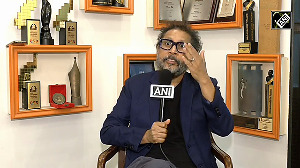Shopping bores me. When I need something, I go where I know it's readily available and get it over with without much hassle.
But here in Singapore, I can understand how rummaging through supermarket shelves, haggling with hawkers and rushing from one sale stampede to another becomes an end in itself. I can also understand the debate in India over allowing foreign investment in retail shopping.
China has few such complexes. It knows (like Singapore) that thrifty Asians can give the Western capitalist, with his import costs, high overheads and fancy establishments, a run for his money.
Sadly, India's egalitarians and ultra-nationalists lack that confidence. The American Wal-Mart chain, the world's largest retailer, already operates 47 stores employing 20,000 people from its Chinese headquarters in the southern commercial centre of Shenzen.
Local lion dancers performed the other day to mark the opening of Wal-Mart's first Shanghai branch. I am sure Wal-Mart is casting covetous eyes at India's fabled 300 million consumers.
No doubt Indians, too, yearn for what it might offer, but the Communists and the Sangh Parivar are united in thwarting them.
Fear and greed are the two keywords. There might even be a link between the two. For why would visiting Indians go berserk here and in Kuala Lumpur, Bangkok and Hong Kong if they were not starved at home of all they hanker for?
Not Indians alone, for there were reports recently of an Indonesian parliamentary delegation to France and the Netherlands spending more time buying than investigating.
Photographs showed members laden with bursting Bally and Gucci bags. "Usually, what they did was simply to take a few pictures in front of Big Ben and Parliament in all its Gothic splendour" said an Indonesian academic in London of visiting MPs, "and then ask me to take them to the nearest expensive shopping area."
Our parliamentarians and officials are no better. I have met them shopping in Singapore on their way back to Delhi from Durban, and buying up London when ostensibly travelling from Delhi to Tokyo.
It is mainly for them that Mohammed Mustafa and Shamsuddin's emporium built a glittering new annexe, and keeps open round the clock.
Singapore's Little India, the seemingly rundown surrounding district dominated by the colourful gopurams of Hindu temples, thrives on Indian visitors. Hotels, travel agencies and currency dealers cater to their needs.
The craze seems all the more extraordinary after a recent survey's finding that India has the world's highest number of retail outlets per head, 5.5 to be exact, for every thousand people.
You would think that Indians can shop till they drop without budging beyond national boundaries. But there's the rub. Not since the big British department stores -- Whiteaway Laidlaw, Hall and Anderson, Army and Navy -- closed their doors have our shops displayed the range of foreign goods that are most sought after.
Nor, until recently, did India boast the marble and mirror malls that turn shopping expeditions into sightseeing ventures.
Austerity and import substitution nurture greed. It cannot be met at home because of the fear that every trader might turn out to be the East India Company.
I have seen the malaise at its worst in the old Soviet Union -- the queues to pay with roubles for tokens to buy a loaf of bread or an unlabelled tin of fish, and the special dollar shops, invisible from the road but crammed inside with all the goodies of the West.
The Soviet consul in Calcutta had assured me that as an honoured guest I would be able to shop in these hallowed premises with rupees. I gave it a try and was politely thrown out, with my unwanted currency.
Invited to tea by a high Soviet academic turned out to be a hauntingly familiar experience. My hostess lovingly brought out an English willow pattern tea service that her husband had brought back from a conference in Western Europe.
No wonder Indians are the second most frenetic shoppers -- South Africans being the first -- in Singapore. Some claim that they are really small-time importers but it comes to the same thing.
Our 20- to 49-age group is expanding; about 159 million households are expected to earn between Rs 22,000 and Rs 215,000 per year in 2005-2006. A younger population with more to spend means increased shopping.
Given the popularity of films and TV and the universality of infotainment, it also means dissatisfaction with what the lala down the road piles on his counter.
Add to that the fact that it's often cheaper to fly to Bangkok from Calcutta or Singapore from Madras than from Delhi to Bangalore, and you know why foreign shopping sprees are all the rage.
Greed provides the momentum for growth. But the fear ought to be banished. Mustafa's is Singapore's most steadily profitable emporium. Small Indian-run corner shops do brisk business, selling stationery, grocery, cosmetics and odds and ends.
But British stores from Hong Kong and K-Mart, the world's second largest discount retailer with 2,114 outlets and annual earnings of $37 billion, had to pack their bags and go. They just couldn't stand indigenous competition.







 © 2025
© 2025